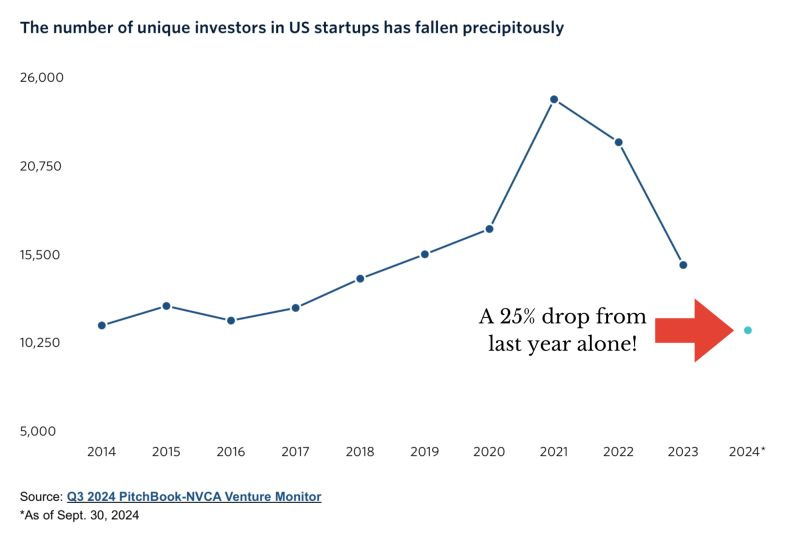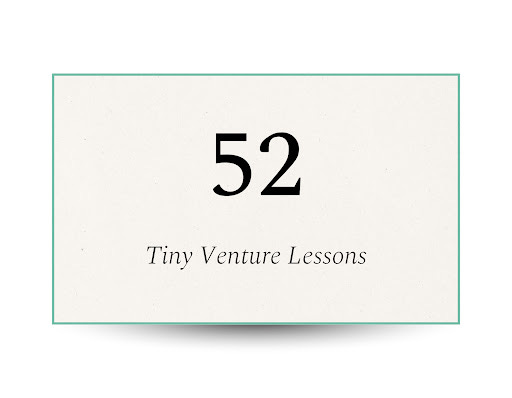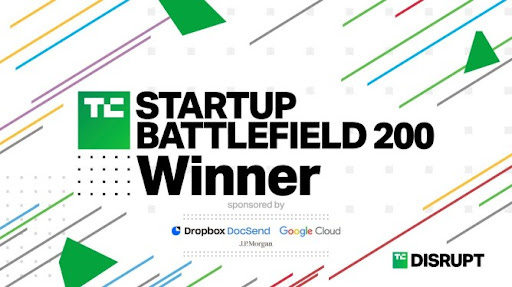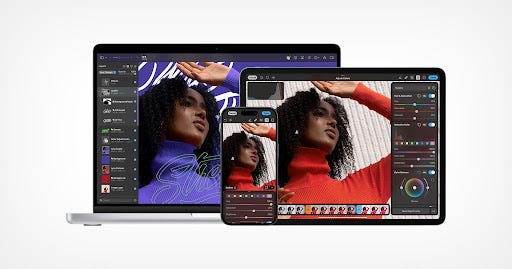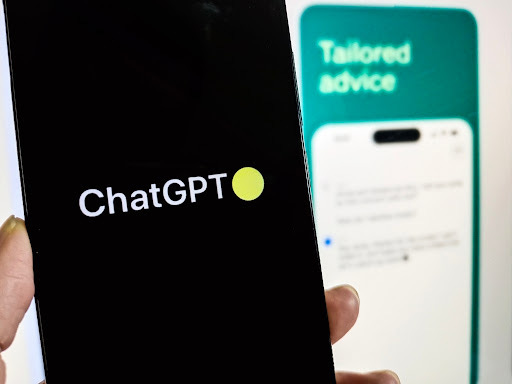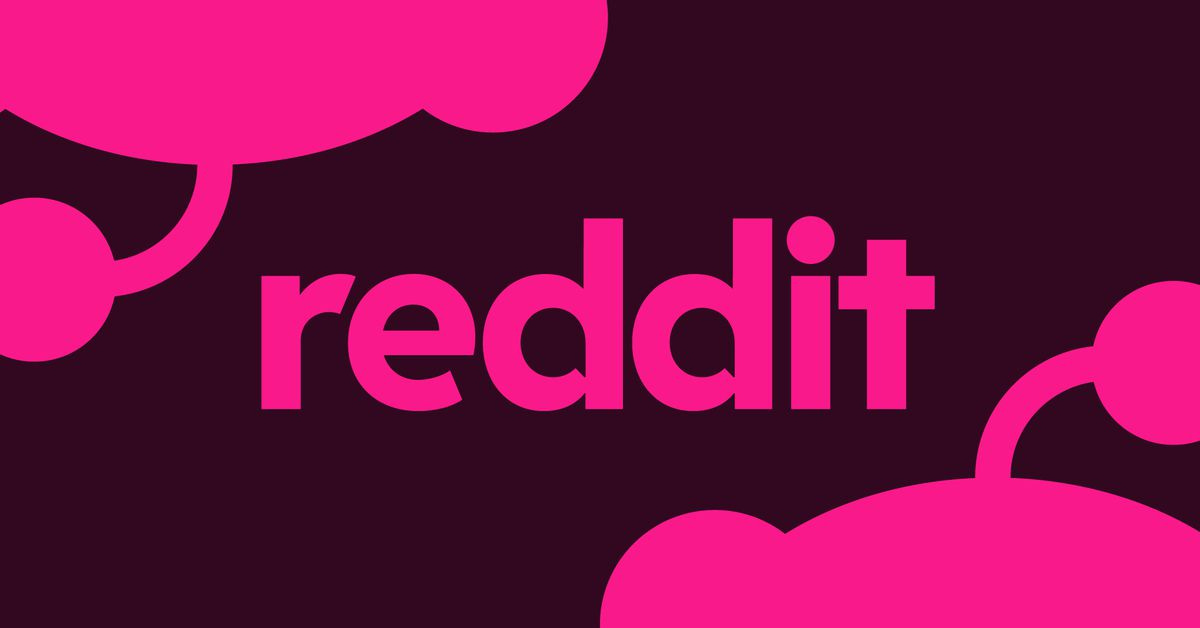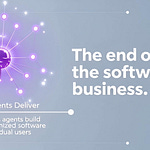A reminder for new readers. Each week, That Was The Week, includes a collection of selected readings on critical issues in tech, startups, and venture capital. I chose the articles based on their interest to me. The selections often include viewpoints I can't entirely agree with. I include them if they provoke me to think. Click on the headline, contents link, or the ‘Read More’ link at the bottom of each piece to go to the original. I express my point of view in the editorial and the weekly video below.
Hat Tip to this week’s creators: @edmarferreira, @stratechery, @JeffBezos, @mariogabriele, @dave_bcs, @cartainc, @PeterJ_Walker, @KevinDowd, @DavidSacks, @ethanjruby, @hamishmckenzie, @kevinweil, @ajkeen, @ProfAndrewScott,@hellabella___, @Techcrunch
Contents
Editorial: Disrupt Edition
OpenAI CPO Kevin Weil on the Future of AI
Editorial: Disrupt Edition
It has been a few years since I attended TechCrunch Disrupt. Gené, my wife, as many of you know, was the original backstage organizer of the event, and for many years, as a founding shareholder, I observed it backstage.
This week, I was a regular attendee. Many TechCrunch staff would not know I was there when TechCrunch was started or even recognize me. It was great.
I mention it because this week’s essays and news items focus on disruption. AI is disrupting faster than anything I have seen in my 4.5 decades in tech and venture capital.
One thing becomes crystal clear: The AI revolution isn't just continuing—it's accelerating. The pace of developments is proving wrong the skeptics who predicted a slowdown or stalling in AI innovation.
In his analysis of "Meta's AI Abundance," Ben Thompson makes a compelling case for Meta's potential dominance in the AI landscape measured by how it impacts users and customers. He highlights Meta's unique advantages, including its massive data sets, existing infrastructure, and willingness to invest heavily in AI.
Edmar Ferreira, in his insightful piece "Why Building in AI Is Nothing Like Making Conventional Software," makes a critical point: traditional software development approaches don't work for AI products due to the fundamentally different risk profiles involved.
While conventional software development focuses on feasibility, value, and viability, AI development throws a curveball with its inherent stochastic nature. This stochasticity, where outputs can vary even with identical inputs, introduces a level of uncertainty that requires a more experimental and iterative approach. Developers must prioritize testing and "tuning" AI models before building software around them, a stark contrast to the linear processes of traditional software development. This shift necessitates a fundamental change in mindset for developers and investors alike.
OpenAI's launch of ChatGPT Search is another significant development with the potential to disrupt the search engine market. By integrating web search capabilities directly into ChatGPT, OpenAI offers users a streamlined and AI-powered alternative to traditional search engines. Powered by GPT-4o, ChatGPT Search aims to provide "timely answers" by drawing from various online sources. This bold move positions OpenAI as a serious contender to Google's dominance in search and could reshape how we access information online.
Skeptics will point to the challenges—the unpredictability of AI development, the need for new development methodologies, and the capital requirements—but they're missing the bigger picture. These aren't obstacles; they're opportunities. The companies and investors who understand this are positioning themselves for unprecedented success.
But while the AI world charges ahead, the venture capital landscape faces its challenges. The rise of "Zombie VCs"—firms unlikely to raise new capital or back new startups—is a concerning trend highlighted by Chris Harvey. This phenomenon is a direct consequence of the Great VC Reckoning, with a surge in new VC funds between 2020 and 2022, followed by a sharp decline in investment activity and subsequent illiquidity.
This reckoning underscores the importance of sound fund modeling and strategic decision-making for VC success, as David Cruz e Silva emphasized in "Why VCs need to master fund modeling."
Looking ahead, a few things seem clear:
AI development will continue to accelerate, making traditional software development approaches increasingly obsolete
Companies that deeply integrate AI into their core operations (like Meta) will pull ahead of those that treat it as an add-on
Healthcare and other traditional industries will see massive disruption from AI-first approaches
The venture capital industry will continue to be challenged by the 2020-2021 craziness and how AI evolves—struggling to find entry points that can provide enormous future value.
Established tech giants will increasingly use their resources to acquire and develop AI capabilities.
Amidst these shifts in AI, TechCrunch Disrupt provided another dose of inspiration. Salva Health, the winner of this year's Startup Battlefield, exemplifies the power of technology to address real-world problems. By developing a portable device for early breast cancer detection, Salva Health is taking aim at a critical healthcare disparity, particularly in Latin America. Applied AI like this will become more common.
The message for investors and entrepreneurs is clear: The AI revolution isn't slowing down—it's speeding up. The time for hesitation is over. Those who embrace this transformation, who understand that AI development requires new approaches and methodologies, and who are willing to experiment and adapt will thrive in this new era.
The question isn't whether AI will transform technology and society—it's who will lead that transformation. Based on this week's developments, the leaders are already emerging. They're the companies and investors who understand that AI isn't just another technology trend—it's the foundation of the next era of human progress. That suggests OpenAI, Anthropic, and a new wave of applied AI startups are the ones to watch.
That said, Apple's recent actions, acquiring Pixelmator and expanding its deal with Globalstar, signal its ambitious plans for the future. The acquisition of Pixelmator, a Mac-centric photo editing application, marks Apple's first foray into the professional editing space since discontinuing Aperture in 2014. This move suggests Apple's renewed interest in catering to experienced users and expanding its creative software offerings.
Apple's commitment of $1.1 billion to Globalstar for satellite services is another strategic move that hints at its vision for ubiquitous connectivity. This expanded deal, coupled with Apple's 20% ownership stake in Globalstar, underlines the growing importance of satellite technology in Apple's ecosystem. This investment could lead to enhanced satellite features on iPhones and potentially pave the way for new devices and services reliant on satellite communication. Starlink can already offer a 5G service from space. Soon, even 5G may be moot. And mobile signal companies may be left in the dust.
This week has been a testament to the transformative power of technology. AI is rapidly reshaping industries, from software development to venture capital, while innovative startups like Salva Health offer hope for a brighter future. And as tech giants like Apple and OpenAI make bold moves, we stand on the cusp of a new era defined by connectivity, personalization, and the democratization of information. It is an exciting time to be an innovator, an investor, and a witness to the unfolding technological revolution.
Essays of the Week
Why Building in AI Is Nothing Like Making Conventional Software
Author: Edmar Ferreira
Source: Every (Source Code)
Main Points:
Traditional software development approaches don't work as well for AI products due to different risk profiles
Three types of startup risks: feasibility (can we build it?), value (will users want it?), and viability (can we make money?)
There are two main categories of AI startups:
Deep AI startups (building foundational models/hardware) - highest risk is feasibility
Applied AI startups (using existing models) - key risk is value, with some feasibility risk
AI development is less predictable than traditional software due to its stochastic nature - outputs can vary even with identical inputs
AI projects require more experimentation and continuous "tuning" compared to traditional software development
Developers should test AI model capabilities before building software components around them
Understanding the risk profile is crucial for prioritizing resources and asking the right questions at each development stage
Meta's AI Abundance
Author: Ben Thompson
Source: Stratechery
Main Points:
Meta is positioned to potentially become the world's most valuable company due to its advantageous position in AI implementation
Short-term advantages:
Applying generative AI to advertising
Leveraging probabilistic models post-ATT (App Tracking Transparency)
Using AI for generating and testing unlimited ad creative
Monetizing through text-to-message AI agents
Medium-term benefits:
Integration of AI-generated content into feeds
Making all content potentially monetizable
Creating perfectly customized content and ads
Maintaining competitive advantage through near-zero price-per-ad
Long-term potential:
XR (Extended Reality) development
Generative UI for AR/VR experiences
Leading in metaverse development with AI-generated environments
Infrastructure advantages from AI investments
Meta's business efficiency and "anti-fragile" nature contribute to its strong position for AI implementation
Meta's founder-led structure and willingness to invest heavily in AI infrastructure further strengthens its position
How NotebookLM was created and where it’s going
Author: Azeem Azhar
Source: Exponential View
Summary: I invited my old friend to share with us his insider perspective on creating NotebookLM — a product seen by some as Google’s ChatGPT moment. Its audio summaries feature which creates realistic-sounding conversations between two podcast hosts, in particular, created a bit of buzz. The time hosts ‘realised’ they were not human or spent ten minutes analysing a document that contained only the words ‘poop’ and ‘fart’ went viral. But NotebookLM goes much further than that – it’s a tool for knowledge...
What does Jeff Bezos' non-endorsement mean?
Author: Max Read
Source: Read Max
Summary: Greetings from Read Max HQ! A few housekeeping notes about recent appearances in external media:I’m one of the writers who contributed recommendations to this year’s N+1 “Bookmatch” fundraiser! Bookmatch isa one-of-a-kind personality test that pairs each donor with a unique list of ten book recommendations. This year, Bookmatch is back with a brand-new set of quiz questions that will see right into your soul—and hundreds of new book recommendations, selected by our favorite writers and artist...
The hard truth: Americans don't trust the news media
Author: Jeff Bezos
Source: The Washington Post
Main Points:
Media trust has fallen below Congress in recent Gallup polls, making journalism the least trusted profession
Media must not only be accurate but also be believed to be accurate - currently failing on the latter
The Washington Post will end presidential endorsements as they create perception of bias without actually influencing voters
Bezos acknowledges he's a "complexifier" for The Post due to his business interests but maintains editorial independence
While quality newspapers win prizes, they increasingly speak only to elite audiences rather than reaching broader populations
Bezos commits to fighting for The Post's relevance against unresearched podcasts and social media, emphasizing the need for credible, trusted, independent journalism
The latest data from PitchBook highlights the surge of Zombie venture…
The venture capital world is seeing a rise in 𝙯𝙤𝙢𝙗𝙞𝙚 𝙑𝘾𝙨—venture firms unlikely to raise new capital or back new startups.
Author: Chris Harvey
Source: Linkedin
𝗧𝗵𝗲 𝗚𝗿𝗲𝗮𝘁 𝗩𝗖 𝗥𝗲𝗰𝗸𝗼𝗻𝗶𝗻𝗴:
• 2020-2022: 1,263 new VC funds emerged (+72% vs previous period)
• 2023-2024: Unique investors in startups cut by 50%
• 25% of active VCs from 2023 have paused new investments in 2024
• Capital deployment at lowest levels since 2010
Summary: Typical progression of Zombie funds:-suddenly discover portfolio management and delay exits so you can survive on management fees-once that runs out, discover a long lost vocation as a manager and parachute yourself into a portfolio company as CEO or if you are a real loser, as CFO.
52 Tiny Venture Lessons
Author: Mario Gabriele
Source: The Generalist
Summary: 🌟 Hey there! This is a subscriber-only edition of our premium newsletter designed to make you a better investor, founder, and technologist. Members get access to the strategies, tactics, and wisdom of exceptional investors and founders. Become a member today.Subscribe nowFriends, It has been over four years since I decided to go full-time on The Generalist. In that time, we’ve been lucky to profile some of the world’s best-performing venture capital firms, sometimes spending months understand...
Why VCs need to master fund modeling
Author: David Cruz e Silva
Source: EUVC | The Europe VC
Main Points:
Fund modeling is essential for VC success and acts as a blueprint for fund performance:
Not just a spreadsheet exercise
Helps forecast portfolio performance
Guides informed decision-making
Fund size determines strategy:
$30M fund operates differently from a $250M fund
Smaller funds need fewer huge wins to return capital
Larger funds require more reserves and follow-on investments
Timing and outliers are crucial:
Poor timing can ruin potentially good investments
Need to chase 70x outliers for significant returns
Higher loss ratio is acceptable if it leads to big winners
Model should be understood by entire team:
Not just for partners
Associates and principals need to understand
Drives entire fund's strategy
Key principles:
Keep models simple but effective
Regular updates needed as market conditions change
Consider opportunity funds for mature assets
Don't overcomplicate with every SAFE note or convertible loan
SPV Spotlight: Q3 2024
Authors: Kevin Dowd, Peter Walker, Michael Young, PhD, Ashley Neville
Source: Carta
Summary: As broader investment activity across the venture capital industry has increased over the past decade, the use of special purpose vehicles (SPVs) among institutional investors has expanded, too. The number of new SPVs exploded during the venture capital boom of 2021, rising 235% year over year. SPV formations have slowed down since then, but the long-term trend is clear. Compared to three years ago, the annual count of new SPVs formed on Carta is up 31%. Compared to five years ago, it’s up 11...
The Pipeline Metrics That Matter
Author: David Sacks
Source: Bottom Up by David Sacks
Summary: In a previous post, we defined The SaaS Metrics That Matter to explain the growth, retention, and efficiency metrics that every SaaS company should be tracking. This post expands on that topic by breaking down the most important sales pipeline metrics to add to your reporting stack.Analyzing sales pipeline is vital for forecasting future growth and learning where your product and GTM process needs to improve, but too often we see startups turn to unreliable heuristics like top-down growth goa...
The Substack app is now the most powerful growth machine for creators
Author: Hamish McKenzie
Source: On Substack
Summary: For a year and a half, we’ve been quietly cultivating a powerful new growth engine. It’s the Substack app, and it’s now the number one source of all subscriptions on the platform. Until recently, recommendations were Substack’s largest growth driver. Recommendations, through which publishers can promote other publishers to their audience, have generated more than 34 million subscriptions across the platform. Product management expert , whose newsletter is the top revenue-earner in the busines...
Video of the Week
Interview of the Week
Investing in an Era of an Aging Population
October 31, 2024
Investing in an Era of an Aging Population
The U.S. is experiencing an aging population. By 2070, the number of people over 65 will outnumber children, making retirement planning crucial.
This graphic, created in partnership with New York Life Investments, gives context to how this long-term trend in demographics unfolded over the last few decades. It also delves into how investors can prepare for it.
Startup of the Week
And the winner of Startup Battlefield at Disrupt 2024 is: Salva Health
And the winner of Startup Battlefield at Disrupt 2024 is: Salva Health
4:29 PM PDT · October 30, 2024
Over the last three days, 20 startups participated in the incredibly competitive Startup Battlefield at TechCrunch Disrupt. These 20 companies were selected as the best of the Startup Battlefield 200 and competed for a chance to take home the Startup Battlefield Cup and $100,000. After three days of intense pitching, we have a winner.
The startups taking part in the Startup Battlefield had all been hand-picked to participate in our startup competition. All the companies presented a live demo in front of multiple groups of VCs and tech leaders serving as judges for a chance to win $100,000 and the coveted Disrupt Cup.
After hours of deliberations, TechCrunch editors pored over the judges’ notes and narrowed the list down to five finalists: Gecko Materials, Luna, MabLab, Salva Health, and Stitch3D.
These startups made their way to the finale to demo in front of our final panel of judges, which included Navin Chaddha (Mayfield), Chris Farmer (SignalFire), Dayna Grayson (Construct Capital), Ann Miura-Ko (Floodgate), and Hans Tung (Notable Capital).
We’re now ready to announce that the winner of TechCrunch Startup Battlefield 2024 is . . .
Winner: Salva Health
Six years ago, while researching for a college entrepreneurship competition, Valentina Agudelo identified a troubling gap in breast cancer survival rates between Latin America and the developed world, with women in her native Colombia and the rest of the continent dying at higher rates due to late detection. She realized that breast cancer is highly treatable when diagnosed early, yet many Latin American countries have large rural populations lacking access to mammograms and other diagnostic tools. So Agudelo and her two best friends decided to create Salva Health, a theoretical portable device that would detect breast cancer early.
Post of the Week
Why the M4 Mac mini Will Be My Best Mac Ever!
Author: JF Martin
Source: Numeric Citizen Space
Summary: In this article, I want to do things differently. I will write about why the new M4 Mac mini is the most fantastic Mac ever and share my thoughts gathered during a week of Mac announcements. Let’s get down to it.First thing first: I’m a Mac fan. I’ve been such a fan for quite some time and wrote about it extensively. I tried to use recent Macs in recent years because I spend so much time working with them that I want the best. I’ve been a longtime desktop fan with many iMac models (2005, 2007...
News Of the Week
Apple Acquires Photo Editing Software Company Pixelmator
Author: Jaron Schneider
Source: PetaPixel
Summary: Pixelmator, a Mac-centric photo editing application, announced that it has been acquired by Apple. It marks the first time that Apple has chosen to dip a toe into the professional editing space since it ceased development of Aperture in 2014. [Read More]
Apple expands iPhone satellite services deal, commits $1.1bn to expand capacity
Author: Benjamin Mayo
Source: 9to5Mac
Summary: Satellite services provider GlobalStar today disclosed an expansion of its deal with Apple. Apple will commit an additional $1.1 billion for upfront infrastructure prepayments, to increase the capacity of satellite services. Additionally, Apple will take 20% ownership of GlobalStar, in an equity deal worth about $400 million. The news has sent GlobalStar stock soaring, and it hints towards Apple’s growing plans for iPhone satellite features. With iOS 18, for instance, iPhone users are now abl...
OpenAI's ChatGPT Search Now Available as Google Alternative
Author: Juli Clover
Source: MacRumors
Summary: OpenAI today announced the addition of ChatGPT Search to ChatGPT, allowing for improved AI-based internet searches. OpenAI says that ChatGPT is able to search the web "in a much better way than before," with the chatbot able to provide links to relevant web sources like a traditional search engine. ChatGPT Search uses ChatGPT-4o, and it is available now on the ChatGPT website and in the desktop and mobile apps for those who have ChatGPT Plus and ChatGPT Teams. ChatGPT users who have been on t...
OpenAI launches its Google challenger, ChatGPT Search
Author: Kyle Wiggers
Source: TechCrunch
Summary: OpenAI’s Google challenger is finally here. The company on Thursday launched ChatGPT Search, an evolution of the SearchGPT prototype it unveiled this summer. Built into OpenAI’s ChatGPT platform, ChatGPT Search is designed to give “timely answers” to questions, OpenAI says, drawing from a range of online sources. Powered by a fine-tuned version of OpenAI’s GPT-4o model, […] © 2024 TechCrunch. All rights reserved. For personal use only.
ChatGPT Advanced Voice Arrives in Desktop App
Author: Jorge A. Aguilar
Source: How-To Geek
Summary: OpenAI has announced that its advanced voice model is now available in its desktop apps for macOS and Windows. You can try it out by udpating to the latest version of the app.
Musk’s xAI to Raise Capital at $40 Billion Valuation
Author: Kate Clark
Source: The Information
Summary: Elon Musk’s xAI, the developer of the Grok chatbot, is in talks to raise more money at a $40 billion valuation, according to a person with direct knowledge of the fundraising efforts. Wall Street Journal was first to report the news. The company, founded last year, raised $6 billion in a round ...
Dropbox cuts its workforce by 20 percent in latest round of layoffs
Author: Umar Shakir
Source: The Verge - Business Posts
Summary: Dropbox is cutting its workforce by 20 percent today — laying off 528 people — amid slowing growth for its core cloud storage business. The latest round of cuts comes after Dropbox laid off around 500 people in early 2023 to redirect efforts to its AI division.“We’re making more significant cuts in areas where we’re over-invested or underperforming while designing a flatter, more efficient team structure overall,” writes Dropbox CEO Drew Houston in a blog post titled An update from Drew. At t...
Reddit is profitable for the first time ever, with nearly 100 million daily users
Author: Emma Roth
Source: The Verge - Business Posts
Summary: Reddit just turned a profit for the first time. As part of its third-quarter earnings results released on Tuesday, the company reported a profit of $29.9 million, along with $348.4 million in revenue — a 68 percent increase year over year.The company hasn’t been profitable at any point in its nearly 20-year history. Since going public, Reddit lost $575 million during its first quarter on the market, but it decreased that loss to $10 million last quarter, and is now finally in the green.Reddit...








